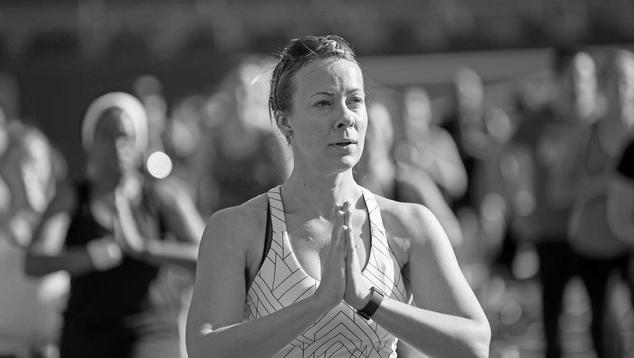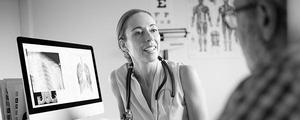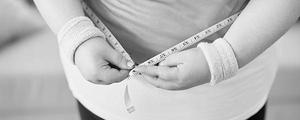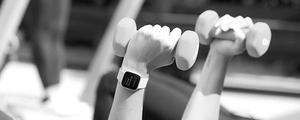Story Highlights
- While 71% are positive about their health, 22% are mixed and 7% negative
- Self-assessments of health are strongly related to household income
- Privately insured report better health than those on Medicare, uninsured
WASHINGTON, D.C. -- According to reports of their own health, seven in 10 U.S. adults are in good physical and mental health, including 20% rating both aspects "excellent," 26% rating both "good," and 25% rating one aspect good and the other excellent.
Another 22% of Americans give mixed reports about their health, rating one aspect excellent or good and the other aspect "only fair" or "poor." The remaining 7% rate both their physical and mental health in the more negative terms.
| U.S. adults | ||||||||||||||||||||||||||||||||||||||||||||||||||||||||||||||||||||||||||||||||||||||||||||||||||||
|---|---|---|---|---|---|---|---|---|---|---|---|---|---|---|---|---|---|---|---|---|---|---|---|---|---|---|---|---|---|---|---|---|---|---|---|---|---|---|---|---|---|---|---|---|---|---|---|---|---|---|---|---|---|---|---|---|---|---|---|---|---|---|---|---|---|---|---|---|---|---|---|---|---|---|---|---|---|---|---|---|---|---|---|---|---|---|---|---|---|---|---|---|---|---|---|---|---|---|---|---|
| % | ||||||||||||||||||||||||||||||||||||||||||||||||||||||||||||||||||||||||||||||||||||||||||||||||||||
| Positive assessment (71%) | ||||||||||||||||||||||||||||||||||||||||||||||||||||||||||||||||||||||||||||||||||||||||||||||||||||
| Excellent mental and physical health | 20 | |||||||||||||||||||||||||||||||||||||||||||||||||||||||||||||||||||||||||||||||||||||||||||||||||||
| Excellent mental health/Good physical health | 19 | |||||||||||||||||||||||||||||||||||||||||||||||||||||||||||||||||||||||||||||||||||||||||||||||||||
| Excellent physical health/Good mental health | 6 | |||||||||||||||||||||||||||||||||||||||||||||||||||||||||||||||||||||||||||||||||||||||||||||||||||
| Good mental and physical health | 26 | |||||||||||||||||||||||||||||||||||||||||||||||||||||||||||||||||||||||||||||||||||||||||||||||||||
| Mixed assessment (22%) | ||||||||||||||||||||||||||||||||||||||||||||||||||||||||||||||||||||||||||||||||||||||||||||||||||||
| Excellent or good mental health/Only fair or poor physical health | 14 | |||||||||||||||||||||||||||||||||||||||||||||||||||||||||||||||||||||||||||||||||||||||||||||||||||
| Excellent or good physical health/Only fair or poor mental health | 8 | |||||||||||||||||||||||||||||||||||||||||||||||||||||||||||||||||||||||||||||||||||||||||||||||||||
| Negative assessment (7%) | ||||||||||||||||||||||||||||||||||||||||||||||||||||||||||||||||||||||||||||||||||||||||||||||||||||
| Only fair or poor mental health and physical health | 7 | |||||||||||||||||||||||||||||||||||||||||||||||||||||||||||||||||||||||||||||||||||||||||||||||||||
| Gallup, 2015-2019 | ||||||||||||||||||||||||||||||||||||||||||||||||||||||||||||||||||||||||||||||||||||||||||||||||||||
This analysis is based on combined data from 2015 to 2019, encompassing interviews with 5,120 adults aged 18 and older.
Health Status Strongly Related to Income
While relatively few adults in any demographic subgroup view both aspects of their health negatively, there is significant variation in the percentages offering positive versus mixed reports.
The most striking differences are by income.
-
Nearly nine in 10 adults in households earning $100,000 or more rate both their physical and mental health positively (87%); however, this drops to 77% among those in middle-income households and 54% among those earning less than $40,000.
-
A relatively sizable 13% of the lower-income group is negative about both aspects of their health, far exceeding the rate among middle-income (5%) and upper-income (2%) adults.
The data also show significant differences by education, with more than eight in 10 college graduates and postgraduates rating their health positively, versus 71% of those with some college experience and 60% of those with no college education.
There are slight differences by gender and race. Men and non-Hispanic whites are more likely than their counterparts to rate their health positively.
Similar proportions of younger and older adults rate their mental and physical health positively. However, this masks young adults' much greater likelihood of rating their physical health "excellent," which is offset by older adults being more likely to rate their health "good." Also, older Americans tend to be a bit more positive about their mental health.
| Positive assessment | Mixed assessment | Negative assessment | ||||||||||||||||||||||||||||||||||||||||||||||||||||||||||||||||||||||||||||||||||||||||||||||||||
|---|---|---|---|---|---|---|---|---|---|---|---|---|---|---|---|---|---|---|---|---|---|---|---|---|---|---|---|---|---|---|---|---|---|---|---|---|---|---|---|---|---|---|---|---|---|---|---|---|---|---|---|---|---|---|---|---|---|---|---|---|---|---|---|---|---|---|---|---|---|---|---|---|---|---|---|---|---|---|---|---|---|---|---|---|---|---|---|---|---|---|---|---|---|---|---|---|---|---|---|---|
| % | % | % | ||||||||||||||||||||||||||||||||||||||||||||||||||||||||||||||||||||||||||||||||||||||||||||||||||
| U.S. adults | 71 | 22 | 7 | |||||||||||||||||||||||||||||||||||||||||||||||||||||||||||||||||||||||||||||||||||||||||||||||||
| Income | ||||||||||||||||||||||||||||||||||||||||||||||||||||||||||||||||||||||||||||||||||||||||||||||||||||
| $100,000 or more | 87 | 11 | 2 | |||||||||||||||||||||||||||||||||||||||||||||||||||||||||||||||||||||||||||||||||||||||||||||||||
| $40,000-$99,999 | 77 | 18 | 5 | |||||||||||||||||||||||||||||||||||||||||||||||||||||||||||||||||||||||||||||||||||||||||||||||||
| Less than $40,000 | 54 | 33 | 13 | |||||||||||||||||||||||||||||||||||||||||||||||||||||||||||||||||||||||||||||||||||||||||||||||||
| Education | ||||||||||||||||||||||||||||||||||||||||||||||||||||||||||||||||||||||||||||||||||||||||||||||||||||
| Postgraduate | 86 | 11 | 2 | |||||||||||||||||||||||||||||||||||||||||||||||||||||||||||||||||||||||||||||||||||||||||||||||||
| College graduate only | 82 | 14 | 3 | |||||||||||||||||||||||||||||||||||||||||||||||||||||||||||||||||||||||||||||||||||||||||||||||||
| Some college | 71 | 23 | 5 | |||||||||||||||||||||||||||||||||||||||||||||||||||||||||||||||||||||||||||||||||||||||||||||||||
| No college | 60 | 28 | 12 | |||||||||||||||||||||||||||||||||||||||||||||||||||||||||||||||||||||||||||||||||||||||||||||||||
| Gender | ||||||||||||||||||||||||||||||||||||||||||||||||||||||||||||||||||||||||||||||||||||||||||||||||||||
| Men | 74 | 19 | 7 | |||||||||||||||||||||||||||||||||||||||||||||||||||||||||||||||||||||||||||||||||||||||||||||||||
| Women | 68 | 24 | 8 | |||||||||||||||||||||||||||||||||||||||||||||||||||||||||||||||||||||||||||||||||||||||||||||||||
| Age | ||||||||||||||||||||||||||||||||||||||||||||||||||||||||||||||||||||||||||||||||||||||||||||||||||||
| 18-29 | 69 | 26 | 5 | |||||||||||||||||||||||||||||||||||||||||||||||||||||||||||||||||||||||||||||||||||||||||||||||||
| 30-49 | 74 | 19 | 7 | |||||||||||||||||||||||||||||||||||||||||||||||||||||||||||||||||||||||||||||||||||||||||||||||||
| 50-64 | 70 | 20 | 9 | |||||||||||||||||||||||||||||||||||||||||||||||||||||||||||||||||||||||||||||||||||||||||||||||||
| 65+ | 69 | 22 | 8 | |||||||||||||||||||||||||||||||||||||||||||||||||||||||||||||||||||||||||||||||||||||||||||||||||
| Race/Ethnicity | ||||||||||||||||||||||||||||||||||||||||||||||||||||||||||||||||||||||||||||||||||||||||||||||||||||
| Non-Hispanic white | 73 | 20 | 7 | |||||||||||||||||||||||||||||||||||||||||||||||||||||||||||||||||||||||||||||||||||||||||||||||||
| Non-Hispanic black | 68 | 24 | 8 | |||||||||||||||||||||||||||||||||||||||||||||||||||||||||||||||||||||||||||||||||||||||||||||||||
| Hispanic | 63 | 29 | 8 | |||||||||||||||||||||||||||||||||||||||||||||||||||||||||||||||||||||||||||||||||||||||||||||||||
| Gallup, 2015-2019 | ||||||||||||||||||||||||||||||||||||||||||||||||||||||||||||||||||||||||||||||||||||||||||||||||||||
The Uninsured Far Less Healthy Than Adults With Private Insurance
Gallup ascertains respondents' health insurance status by asking if they are covered by Medicare, Medicaid or another form of insurance.
Americans with private health insurance -- mainly adults of working age who get their insurance through an employer -- offer a mostly positive assessment of their health: 82% are positive about their physical and mental health, while only 3% are negative about both.
Far fewer adults who are insured through Medicare or Medicaid report positive physical and mental health (58%), while 29% give mixed reports and 12% are negative on both. This is not surprising, given that Medicare and Medicaid are mandated to provide coverage to seniors, people with certain illnesses or disabilities, and low-income Americans.
The health status of people with no insurance is comparable to that of Medicare or Medicaid enrollees. Six in 10 uninsured adults rate their physical and mental health positively, but 29% are negative about one aspect of their health while 9% are negative about both.
| Positive assessment | Mixed assessment | Negative assessment | |||||||||||||||||||||||||||||||||||||||||||||||||||||||||||||||||||||||||||||||||||||||||||||||||
|---|---|---|---|---|---|---|---|---|---|---|---|---|---|---|---|---|---|---|---|---|---|---|---|---|---|---|---|---|---|---|---|---|---|---|---|---|---|---|---|---|---|---|---|---|---|---|---|---|---|---|---|---|---|---|---|---|---|---|---|---|---|---|---|---|---|---|---|---|---|---|---|---|---|---|---|---|---|---|---|---|---|---|---|---|---|---|---|---|---|---|---|---|---|---|---|---|---|---|---|
| % | % | % | |||||||||||||||||||||||||||||||||||||||||||||||||||||||||||||||||||||||||||||||||||||||||||||||||
| Private Insurance | 82 | 15 | 3 | ||||||||||||||||||||||||||||||||||||||||||||||||||||||||||||||||||||||||||||||||||||||||||||||||
| Medicare or Medicaid | 58 | 29 | 12 | ||||||||||||||||||||||||||||||||||||||||||||||||||||||||||||||||||||||||||||||||||||||||||||||||
| No insurance | 61 | 29 | 9 | ||||||||||||||||||||||||||||||||||||||||||||||||||||||||||||||||||||||||||||||||||||||||||||||||
| Gallup, 2015-2019 | |||||||||||||||||||||||||||||||||||||||||||||||||||||||||||||||||||||||||||||||||||||||||||||||||||
Being Very Overweight Constrains Sense of Good Health
The poll also offers insight into the relationship between weight and health, based on Americans' self-reported weight.
Seventy-eight percent of those who say their weight is "about right" are positive about their physical and mental health, but the figure drops to 69% among those who say they are "somewhat overweight" and to 41% for those who are "very overweight." Meanwhile, the percentage negative about both health aspects is markedly higher among those who say they are very overweight (26%) than among the somewhat overweight (7%) or about right (5%) groups.
The percentage feeling positive about both health aspects is almost as low among Americans who are "somewhat underweight" (49%) as among those who are very overweight, while there are too few "very underweight" respondents in the data to evaluate.
| Positive assessment | Mixed assessment | Negative assessment | |||||||||||||||||||||||||||||||||||||||||||||||||||||||||||||||||||||||||||||||||||||||||||||||||
|---|---|---|---|---|---|---|---|---|---|---|---|---|---|---|---|---|---|---|---|---|---|---|---|---|---|---|---|---|---|---|---|---|---|---|---|---|---|---|---|---|---|---|---|---|---|---|---|---|---|---|---|---|---|---|---|---|---|---|---|---|---|---|---|---|---|---|---|---|---|---|---|---|---|---|---|---|---|---|---|---|---|---|---|---|---|---|---|---|---|---|---|---|---|---|---|---|---|---|---|
| % | % | % | |||||||||||||||||||||||||||||||||||||||||||||||||||||||||||||||||||||||||||||||||||||||||||||||||
| Very overweight | 41 | 33 | 26 | ||||||||||||||||||||||||||||||||||||||||||||||||||||||||||||||||||||||||||||||||||||||||||||||||
| Somewhat overweight | 69 | 24 | 7 | ||||||||||||||||||||||||||||||||||||||||||||||||||||||||||||||||||||||||||||||||||||||||||||||||
| About right | 78 | 17 | 5 | ||||||||||||||||||||||||||||||||||||||||||||||||||||||||||||||||||||||||||||||||||||||||||||||||
| Somewhat underweight | 49 | 41 | 10 | ||||||||||||||||||||||||||||||||||||||||||||||||||||||||||||||||||||||||||||||||||||||||||||||||
| Very underweight | -- | -- | -- | ||||||||||||||||||||||||||||||||||||||||||||||||||||||||||||||||||||||||||||||||||||||||||||||||
| Results for very underweight not shown because of low sample size | |||||||||||||||||||||||||||||||||||||||||||||||||||||||||||||||||||||||||||||||||||||||||||||||||||
| Gallup, 2015-2019 | |||||||||||||||||||||||||||||||||||||||||||||||||||||||||||||||||||||||||||||||||||||||||||||||||||
Americans Continue to Rate Own Mental Health Better Than Physical Health
Gallup's latest measure of how Americans evaluate their personal health, from the Nov. 1-14 Health and Healthcare poll, finds 43% rating their mental health "excellent" and 28% saying the same of their physical health. When factoring in those rating each health aspect "good," the total percentages feeling positively about their mental and physical health rise to over 80%.
| Excellent | Good | Only fair | Poor | ||||||||||||||||||||||||||||||||||||||||||||||||||||||||||||||||||||||||||||||||||||||||||||||||
|---|---|---|---|---|---|---|---|---|---|---|---|---|---|---|---|---|---|---|---|---|---|---|---|---|---|---|---|---|---|---|---|---|---|---|---|---|---|---|---|---|---|---|---|---|---|---|---|---|---|---|---|---|---|---|---|---|---|---|---|---|---|---|---|---|---|---|---|---|---|---|---|---|---|---|---|---|---|---|---|---|---|---|---|---|---|---|---|---|---|---|---|---|---|---|---|---|---|---|---|
| % | % | % | % | ||||||||||||||||||||||||||||||||||||||||||||||||||||||||||||||||||||||||||||||||||||||||||||||||
| Physical health | 28 | 53 | 15 | 4 | |||||||||||||||||||||||||||||||||||||||||||||||||||||||||||||||||||||||||||||||||||||||||||||||
| Mental health | 43 | 42 | 12 | 3 | |||||||||||||||||||||||||||||||||||||||||||||||||||||||||||||||||||||||||||||||||||||||||||||||
| Gallup, Nov. 1-14, 2019 | |||||||||||||||||||||||||||||||||||||||||||||||||||||||||||||||||||||||||||||||||||||||||||||||||||
Adults not rating their health dimensions in positive terms mostly describe them as "only fair." That leaves fewer than one in 20 Americans describing either their physical health (4%) or their mental health (3%) as "poor."
These findings are similar to the 2018 results, as well as Gallup's long-term trends on both measures, originating in 2001.
Bottom Line
Good physical and mental health leading to long, happy and productive lives is what U.S. healthcare is all about. The less healthy Americans are, the more demands there are on the system to pay for treatment and long-term care.
Most Americans consider themselves generally healthy in both respects; however, there are cautionary notes:
-
About three in 10 Americans report feeling less than healthy physically, mentally or both, a figure that could have implications for economic productivity as well as healthcare costs.
-
Fewer than half consider their physical or mental health (or both) "excellent," indicating room for improvement on both aspects, even if the majority rate their health as at least "good."
-
While some uninsured Americans may be healthy young adults who feel they don't need health insurance, nearly four in 10 uninsured adults rate their health less than optimally, indicating significant demand for healthcare among this population.
-
Good health goes hand in hand with a person's education and household income, suggesting that broadening access to higher education and raising people's standard of living could lead to significant healthcare cost savings.
View complete question responses and trends.
Learn more about how the Gallup Poll Social Series works.




